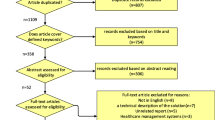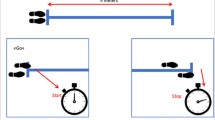Abstract
People living with HIV (PLWH) experience greater everyday functioning impairment. We examined frequency and correlates of successful functional aging (SFA) in PLWH. Using gold-standard questionnaires, SFA was defined in 174 HIV+ and 71 HIV− adults as absence of significant everyday cognitive symptoms and declines in instrumental activities of daily living. More HIV− (45%) than HIV+ (18%) adults met SFA criteria (p < 0.01). Depression, cognitive functioning, socioeconomic status, and HIV status were independent correlates of SFA (p values < 0.05). Motor ability, learning, and verbal fluency were associated with SFA. SFA was associated with health-related quality of life (HRQoL). PLWH are three times less likely to achieve SFA than HIV− adults, a phenotype that translates to HRQoL. While SFA is multifactorial, driven by clinico-demographic factors, HIV may pose additional risk to achieving SFA. Further work should examine other mechanisms whereby HIV hinders SFA (e.g., biomarkers, stress, mental health) and ultimately inform interventions to facilitate SFA.
Similar content being viewed by others
References
Onen NF, Overton ET, Seyfried W, et al. Aging and HIV infection: a comparison between older HIV-infected persons and the general population. HIV Clin Trials. 2010;11(2):100–9.
So-Armah KA, Chang J, Alcorn C, et al. HIV infection, antiretroviral therapy initiation and longitudinal changes in biomarkers of organ function. Curr HIV Res. 2014;12(1):50–9.
Vance DE, Fazeli PL, Gakumo CA. The impact of neuropsychological performance on everyday functioning between older and younger adults with and without HIV. J Assoc Nurses AIDS Care. 2013;24(2):112–25.
Heaton RK, Clifford DB, Franklin DR Jr, et al. HIV-associated neurocognitive disorders persist in the era of potent antiretroviral therapy: CHARTER Study. Neurology. 2010;75(23):2087–96.
Nanni MG, Caruso R, Mitchell AJ, Meggiolaro E, Grassi L. Depression in HIV infected patients: a review. Curr Psychiatry Rep. 2015;17(1):530.
National Institute of Mental Health. 2016. https://www.nimh.nih.gov/health/topics/hiv-aids/index.shtml. Accessed 26 Mar 2019.
Morgan EE, Iudicello JE, Weber E, et al. Synergistic effects of HIV infection and older age on daily functioning. J Acquir Immune Defic Syndr. 2012;61(3):341–8.
Kordovski VM, Woods SP, Verduzco M, Beltran J. The effects of aging and HIV disease on employment status and functioning. Rehabil Psychol. 2017;62(4):591–9.
Blackstone K, Iudicello JE, Morgan EE, et al. Human immunodeficiency virus infection heightens concurrent risk of functional dependence in persons with long-term methamphetamine use. J Addict Med. 2013;7(4):255–63.
Huang YL, Frazier EL, Sansom SL, et al. Nearly half of US adults living with HIV received federal disability benefits in 2009. Health Aff (Millwood). 2015;34(10):1657–65.
Malaspina L, Woods SP, Moore DJ, et al. Successful cognitive aging in persons living with HIV infection. J Neurovirol. 2011;17(1):110–9.
Moore RC, Fazeli PL, Jeste DV, et al. Successful cognitive aging and health-related quality of life in younger and older adults infected with HIV. AIDS Behav. 2014;18(6):1186–97.
Moore DJ, Fazeli PL, Moore RC, et al. Positive psychological factors are linked to successful cognitive aging among older persons living with HIV/AIDS. AIDS Behav. 2018;22(5):1551–61.
Wilkinson GS, Robertson GJ. WRAT4 wide range achievement test professional manual. 4th ed. Lutz: Psychological Assessment Resources, Inc; 2006.
Lawton MP, Brody EM. Assessment of older people: self-maintaining and instrumental activities of daily living. Gerontologist. 1969;9(3):179–86.
Heaton RK, Marcotte TD, Mindt MR, et al. The impact of HIV-associated neuropsychological impairment on everyday functioning. J Int Neuropsychol Soc. 2004;10(3):317–31.
Woods SP, Iudicello JE, Moran LM, Carey CL, Dawson MS, Grant I. HIV-associated prospective memory impairment increases risk of dependence in everyday functioning. Neuropsychology. 2008;22(1):110–7. https://doi.org/10.1037/0894-4105.22.1.110.
Chelune GJ, Heaton RK, Lehman RA. Neuropsychological and personality correlates of patients’ complaints of disability. In: Goldstein G, Tarter R, editors. Advances in clinical neuropsychology. 3rd ed. New York: Plenum Press; 1986. p. 95–126.
Antinori A, Arendt G, Becker JT, et al. Updated research nosology for HIV-associated neurocognitive disorders. Neurology. 2007;69(18):1789–99.
Woods SP, Rippeth JD, Frol AB, Levy JK, Ryan E, Soukup VM, Hinkin CH, Lazzaretto D, Cherner M, Marcotte TD, Gelman BB, Morgello S, Singer EJ, Grant I, Heaton RK. Interrater reliability of clinical ratings and neurocognitive diagnoses in HIV. J Clin Experiment Neuropsychol. 2004;26(6):759–78. https://doi.org/10.1080/13803390490509565.
Heaton RK, Clifford DB, Franklin DR, et al. HIV-associated neurocognitive disorders persist in the era of potent antiretroviral therapy: CHARTER Study. Neurology. 2010;75:2087–96.
Blackstone K, Moore DJ, Franklin DR, et al. Defining neurocognitive impairment in HIV: deficit scores versus clinical ratings. Clin Neuropsychol. 2012;26(6):894–908.
Radloff LS. The CES-D scale: a self report depression scale for research in the general population. Appl Psychol Meas. 1977;1:385–401.
Wu AW, Rubin HR, Mathews WC, et al. A health status questionnaire using 30 items from the Medical Outcomes Study. Preliminary validation in persons with early HIV infection. Med Care. 1991;29(8):786–98.
Revicki DA, Sorensen S, Wu AW. Reliability and validity of physical and mental health summary scores from the Medical Outcomes Study HIV Health Survey. Med Care. 1998;36(2):126–37.
Avila-Funes JA, Belaunzaran-Zamudio PF, Tamez-Rivera O, et al. Correlates of prevalent disability among HIV-infected elderly patients. AIDS Res Hum Retrovir. 2016;32(2):155–62.
Strawbridge WJ, Cohen RD, Shema SJ, Kaplan GA. Successful aging: predictors and associated activities. Am J Epidemiol. 1996;144(2):135–41.
Berkman LF, Seeman TE, Albert M, et al. High, usual and impaired functioning in community-dwelling older men and women: findings from the MacArthur Foundation Research Network on Successful Aging. J Clin Epidemiol. 1993;46(10):1129–40.
John MD, Greene M, Hessol NA, et al. Geriatric Assessments and Association with VACS Index among HIV-infected older adults in San Francisco. J Acquir Immune Defic Syndr. 2016;72(5):534–41.
Watson CW, Sundermann EE, Hussain MA, et al. Effects of trauma, economic hardship, and stress on neurocognition and everyday function in HIV. Health Psychol. 2019;38(1):33–42.
Kamat R, Morgan E, Marcotte TD, et al. Implications of apathy and depression for everyday functioning in HIV/AIDS in Brazil. J Affect Disord. 2013;150(3):1069–75.
Kamat R, Doyle KL, Iudicello JE, et al. Neurobehavioral disturbances during acute and early HIV infection. Cogn Behav Neurol. 2016;29(1):1–10.
Kamat R, Woods SP, Marcotte TD, Ellis RJ, Grant I, Group HIVNRP. Implications of apathy for everyday functioning outcomes in persons living with HIV infection. Arch Clin Neuropsychol. 2012;27(5):520–31.
Kamat R, Woods SP, Cameron MV, Iudicello JE, Group HIVNRP. Apathy is associated with lower mental and physical quality of life in persons infected with HIV. Psychol Health Med. 2016;21(7):890–901.
Roy S, Ficarro S, Duberstein P, et al. Executive function and personality predict instrumental activities of daily living in Alzheimer disease. Am J Geriatr Psychiatry. 2016;24(11):1074–83.
Woods S, Morgan EE, Dawson M, Cobb Scott J, Grant I, Group HIVNRC. Action (verb) fluency predicts dependence in instrumental activities of daily living in persons infected with HIV-1. J Clin Exp Neuropsychol. 2006;28(6):1030–42.
Tierney SM, Woods SP, Sheppard D, Ellis RJ. Extrapyramidal motor signs in older adults with HIV disease: frequency, 1-year course, and associations with activities of daily living and quality of life. J Neurovirol. 2018;25(2):162–73.
Avila-Funes JA, Medina-Campos RH, Tamez-Rivera O, Navarrete-Reyes AP, Amieva H, Aguilar-Navarro S. Frailty is associated with disability and recent hospitalization in community-dwelling elderly: the coyoacan cohort. J Frailty Aging. 2014;3(4):206–10.
Wallace LM, Ferrara M, Brothers TD, et al. Lower frailty is associated with successful cognitive aging among older adults with HIV. AIDS Res Hum Retrovir. 2017;33(2):157–63.
Fazeli PL, Doyle KL, Scott JC, et al. Shallow encoding and forgetting are associated with dependence in instrumental activities of daily living among older adults living with HIV infection. Arch Clin Neuropsychol. 2014;29(3):278–88.
Casaletto KB, Moore DJ, Woods SP, Umlauf A, Scott JC, Heaton RK. Abbreviated goal management training shows preliminary evidence as a neurorehabilitation tool for HIV-associated neurocognitive disorders among substance users. Clin Neuropsychol. 2016;30(1):107–30.
Shirazi TN, Summers AC, Smith BR, et al. Concordance between self-report and performance-based measures of everyday functioning in HIV-associated neurocognitive disorders. AIDS Behav. 2017;21(7):2124–34.
Blackstone K, Moore DJ, Heaton RK, et al. Diagnosing symptomatic HIV-associated neurocognitive disorders: self-report versus performance-based assessment of everyday functioning. J Int Neuropsychol Soc. 2012;18(1):79–88.
Casaletto KB, Doyle KL, Weber E, Woods SP. Self-predictions of prospective memory in HIV-associated neurocognitive disorders: evidence of a metamemory deficit. Arch Clin Neuropsychol. 2014;29(8):818–27.
Acknowledgements
This study was supported by National Institutes of Health (NIH) Grants K99/R00-AG048762 (PLF), R01-MH106366 (DEV), P30-AG022838, and R24-AI067039.
Author information
Authors and Affiliations
Corresponding author
Additional information
Publisher's Note
Springer Nature remains neutral with regard to jurisdictional claims in published maps and institutional affiliations.
Rights and permissions
About this article
Cite this article
Fazeli, P.L., Woods, S.P. & Vance, D.E. Successful Functional Aging in Middle-Aged and Older Adults with HIV. AIDS Behav 24, 1592–1598 (2020). https://doi.org/10.1007/s10461-019-02635-0
Published:
Issue Date:
DOI: https://doi.org/10.1007/s10461-019-02635-0




